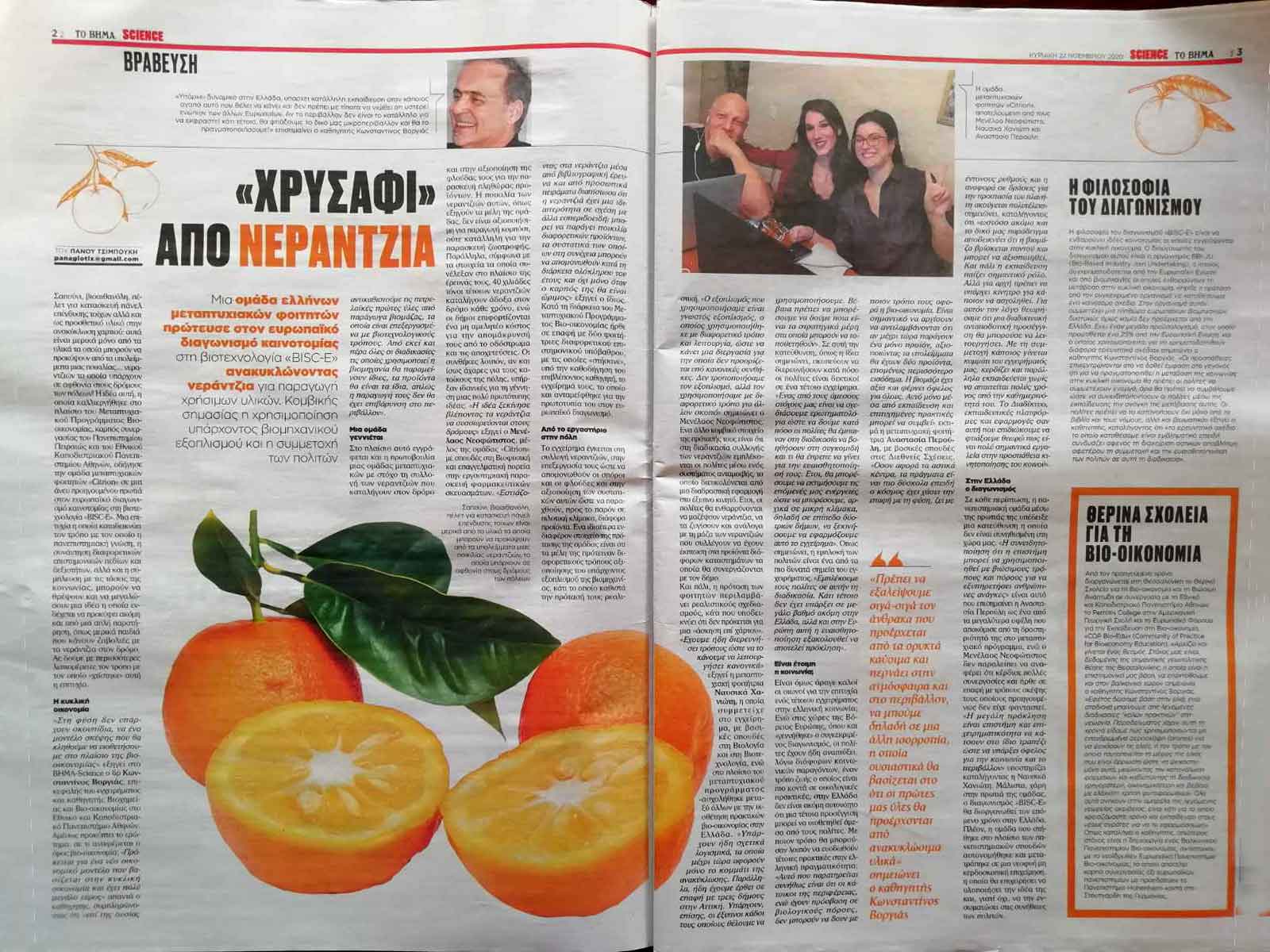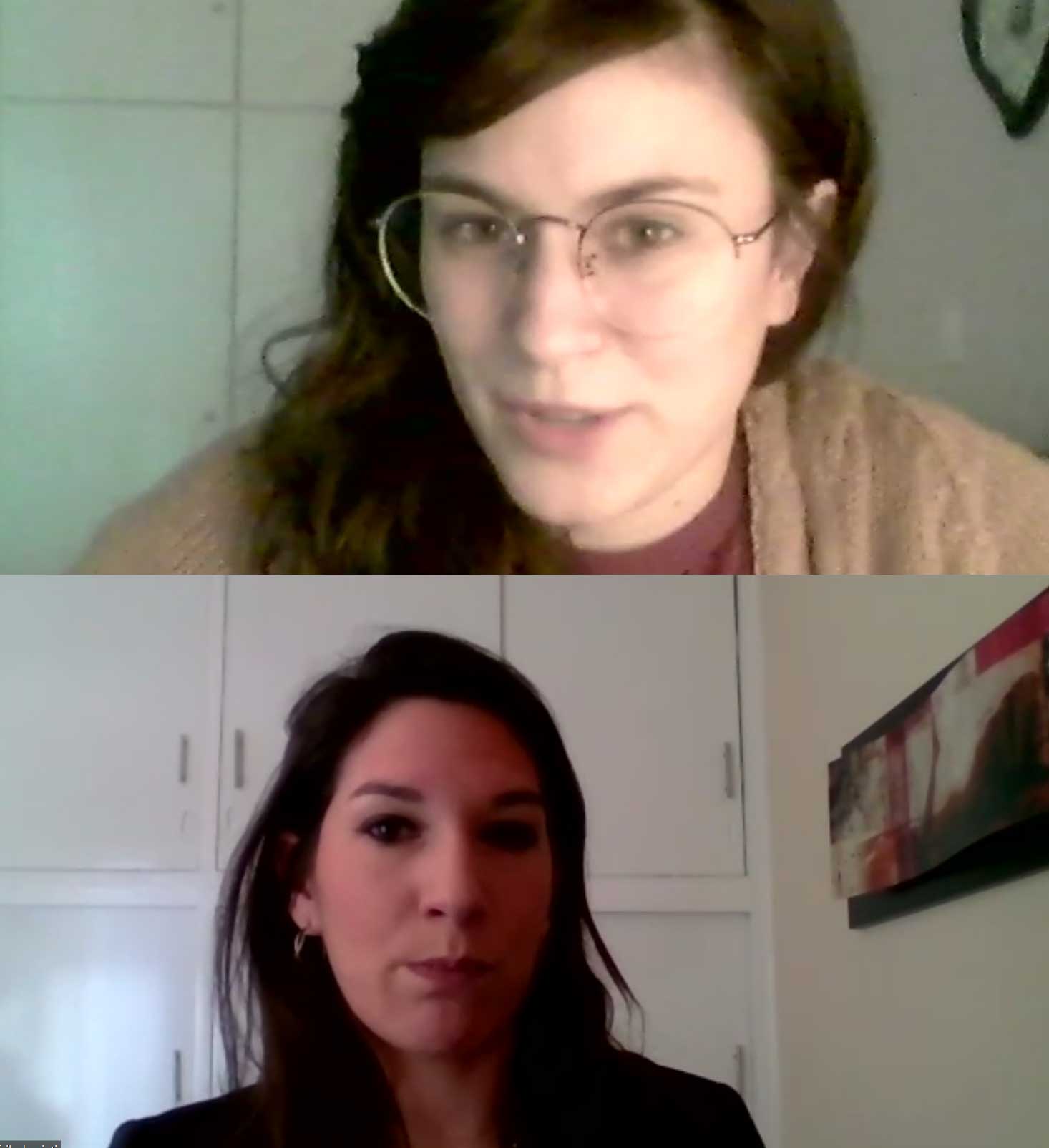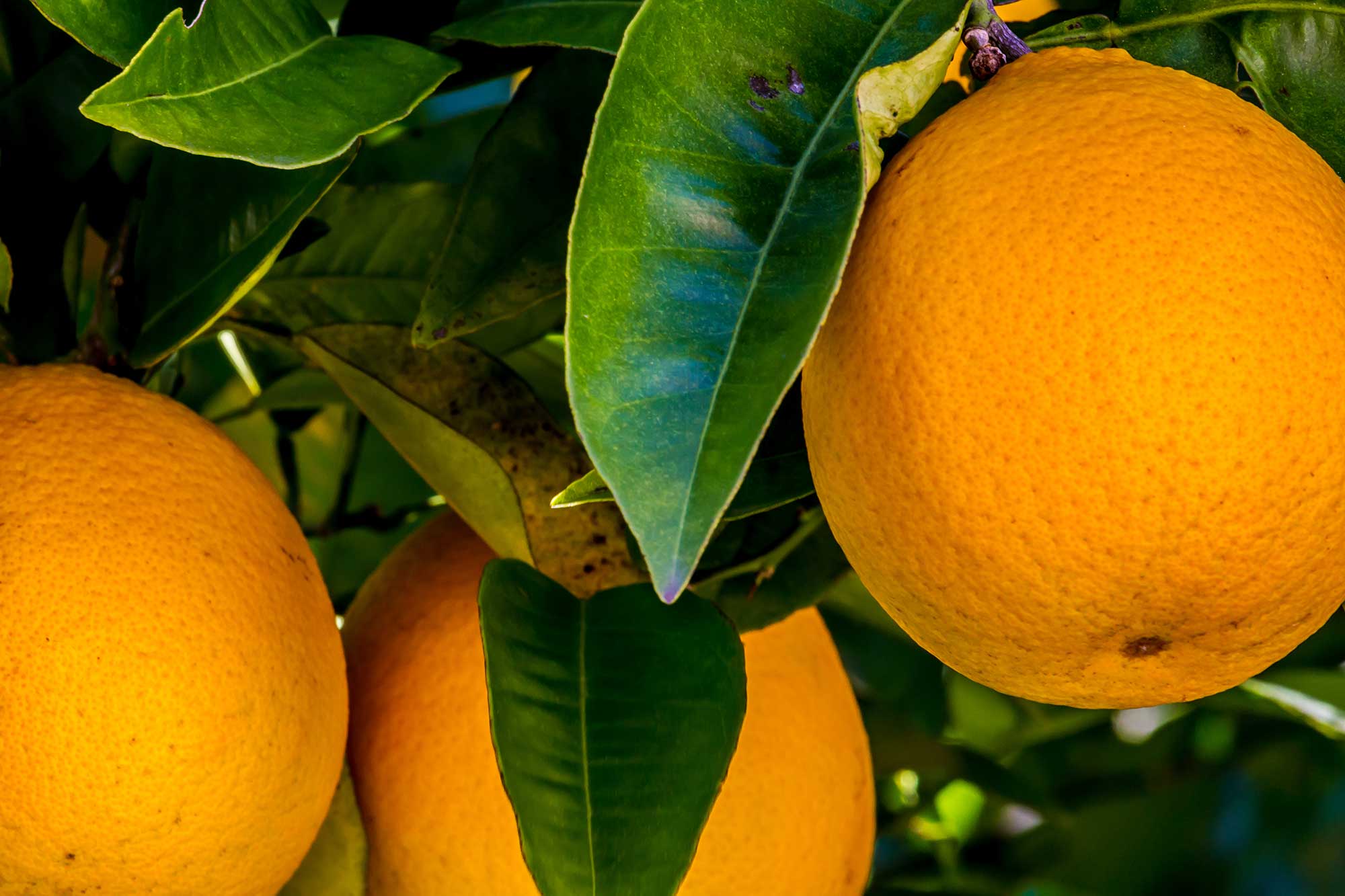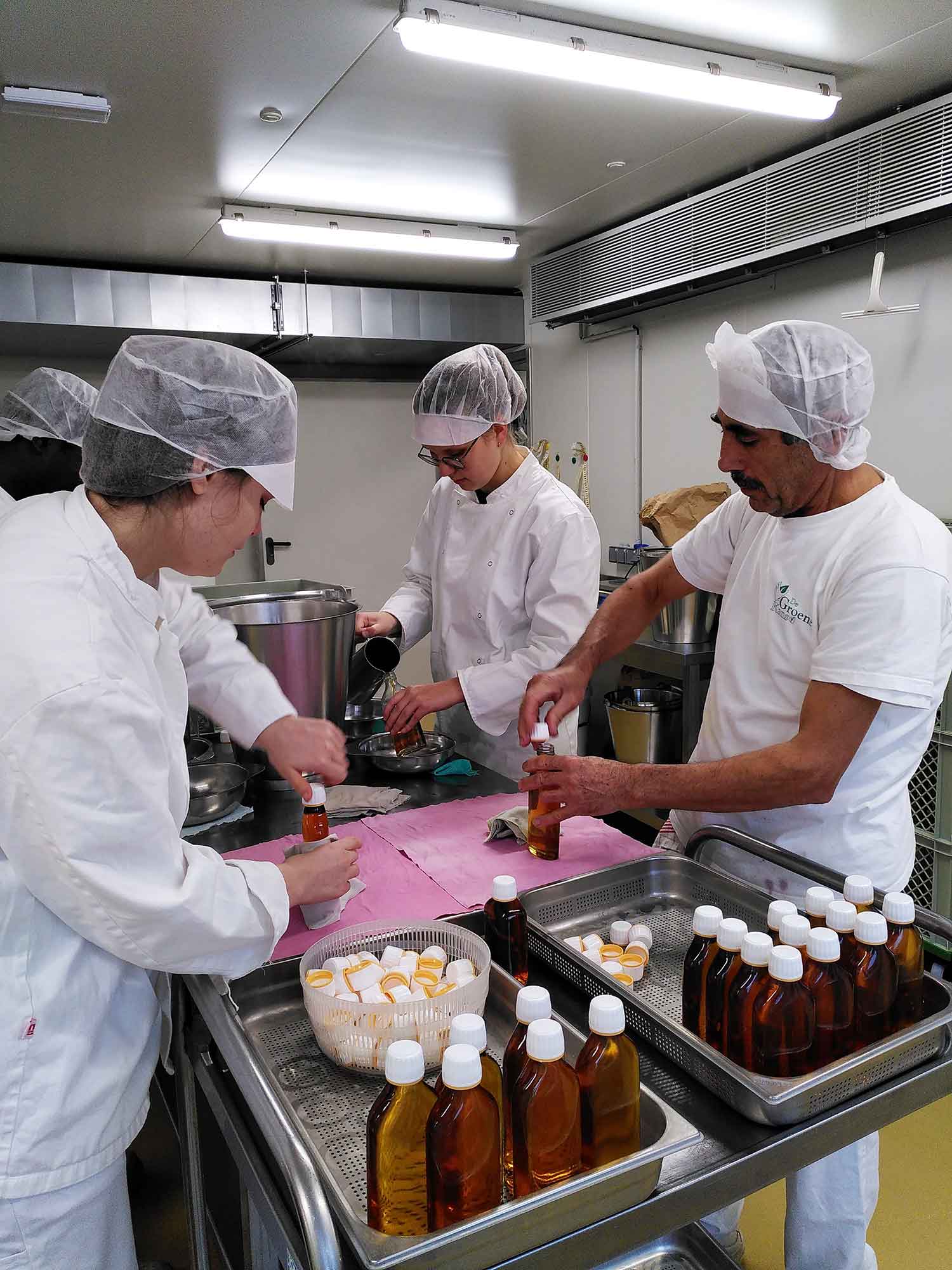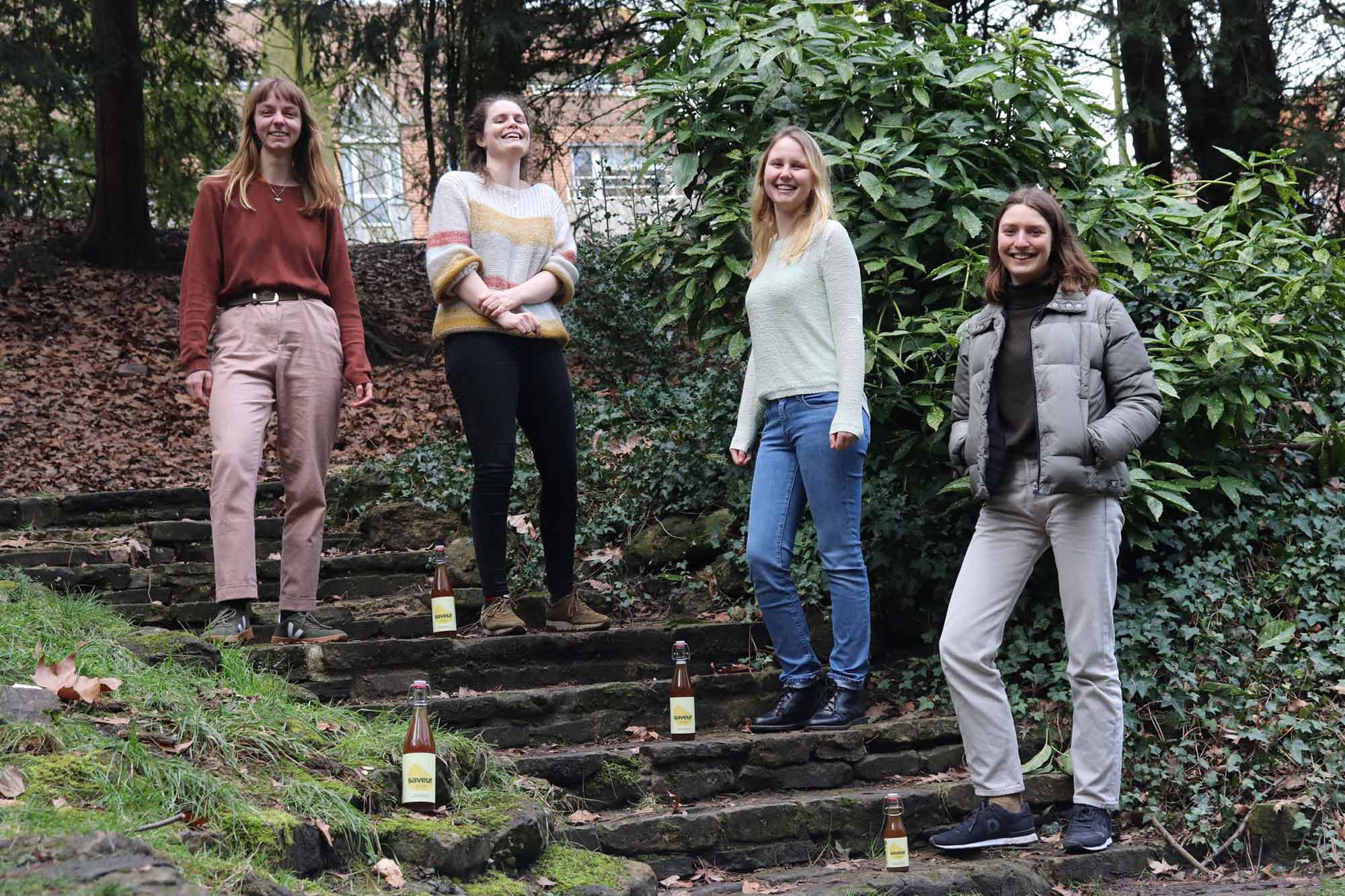The BISC-E participants will have the opportunity to make contacts with a large network of experts and compete for cash prizes to help progress their ideas. In addition, BIC is offering an extensive package to support the winner in the next steps towards finding partners for upscaling and to market entry.
These were important arguments for the winning student teams from previous years to participate. How did they fare after the competition? Agro&Chemistry spoke with representatives of Teams Saveur (winner in 2019) and Citrion (winner in 2020).
Lemonade syrups for adults
With a business plan for the production and distribution of lemonade syrup for adults, made from fruit surpluses, Team Saveur from Ghent University won BISC-E in 2019. The team consisted of Maud Buytaert (Commercial Science student), Nienke Dhondt (Civil Engineering student) and Nathan De Geyter (coach and contact person). Their plan was to valorise residual streams from fruit growers in a sustainable way. Replacing fruit juices with high-quality syrups that can be diluted with tap water would lead to a substantial reduction in packaging waste. The syrups are sold in reusable glass bottles and are now available in various Belgian supermarkets.
Although there was no national BISC-E competition in Belgium in 2019, the University of Ghent was still keen to send a team to the finals. Maud Buytaert: “Three weeks before the finals in Berlin, Nienke and I as Commercial Sciences students were approached by fellow student Nathan De Geyter, who was studying Bioengineering. At the time, we were already working on the idea for Saveur through an acceleration project on entrepreneurship of Enactus.
Recognition
“Winning the competition meant recognition from the biobased sector for us,” says Maud. “At the time, we had hardly any knowledge of this sector and BISC-E enabled us to discuss our plans with experts. Winning also enabled us to finance the production of our first batch.” The winners of BISC-E receive a sum of €5,000 to further develop their plans.
“In the meantime, we have abandoned the idea of making our lemonade from residual streams, because they are not available in a sufficiently constant quality to make large-scale production possible. In that sense, we are less circular than we had initially intended. Nowadays, we buy our raw materials locally from organic fruit growers.”
Seizing opportunities
In the meantime, the initiators of Saveur are on the verge of graduating. It means they have to hand over the reins of their business, because all projects that arise under the wings of Enactus have to be continued by students. “We will, however, look at whether we can coach or mentor a new generation of students.”
Students who are still doubting whether they can participate in BISC-E in 2021 are advised by Maud to definitely seize this opportunity. “It is very useful to make a complete business plan and to be able to discuss it with people who are active in the biobased sector. Conversely, it is also good for students who only have a biobased background to be able to discuss the business-related aspects of their idea and receive professional coaching.”
Bitter oranges
The student team Citrion, consisting of Menelaos Neofotistos, Nausika Hanioti and Anastasia Perouli won the 2020 BISC-E challenge with a special concept: help Athens get rid of the nuisance of bitter oranges and use them as valuable resource for natural ingredients.
Greece also had no national student competition in 2020 due to the coronavirus. This allowed Team Citrion to go straight to the international finals. Menelaos had already been playing for some time with the idea of doing something useful with bitter oranges. Throughout Athens, there are trees with these inedible fruits, of which some 40 kt fall onto the road every year. They smell, become slippery, cause accidents, and clog up rainwater drains.
Team Citrion developed a plan in which citizens collect the fruit in ‘smart bins’, thereby saving points for discounts at local retailers. Valuable ingredients can be extracted from the collected fruit. The team identified two that have commercial potential: preservatives for cosmetics and natural pesticides for organic farming.
Keeping pace
“For us, winning the BISC-E competition was first and foremost recognition of our efforts,” says Nausika Hanioti. “In addition, it shows that Greece, despite the difficulties of recent years, can keep pace with European standards in the fields of industry and science. We believe that we can actively and substantially contribute to the fight against climate change.”
Anastasia Perouli adds: “This competition has actually become our ticket to the corporate world. We had been thinking about the idea for a long time, but the win gave us the push we needed to actually realise it. It is important for us to know that there are people and industries around us who are interested in our project and want to support it. Immediately after the competition, we set up our own non-profit company, which is called Citrion just like the project and focuses on biomass and waste management for the creation of high value-added products. We are now looking for funding and cooperation with other companies.”
Much to gain
For students thinking about participating in BISC-E in 2021, the Greek students have some tips. Nausika: “Young scientists should focus on tackling big challenges, such as harnessing things that seemed useless until now. Nothing is useless, we can use everything. It is important that they see the needs of the market and combine scientific knowledge with entrepreneurship. And of course they must know that even if the road ahead is difficult, they will have to make an effort and if they want to, they will make it.”
Anastasia: “I would like to add that it is important for young people to come forward and speak about their ideas and present them. Don’t just focus on winning the competition. There is so much to gain just by participating! When we entered last year, we did not expect to win, but at least we would get valuable feedback for our project by being able to present it to an expert jury that has been in the business for many years and can help us with valuable information. Whether you win or not, this is a unique experience!”
Registration for BISC-E 2021 is now open. In addition to the general competition, several other categories have been introduced this year. See the BISC-E website for details.
This article was produced in collaboration with the Bio-based Industries Consortium.

